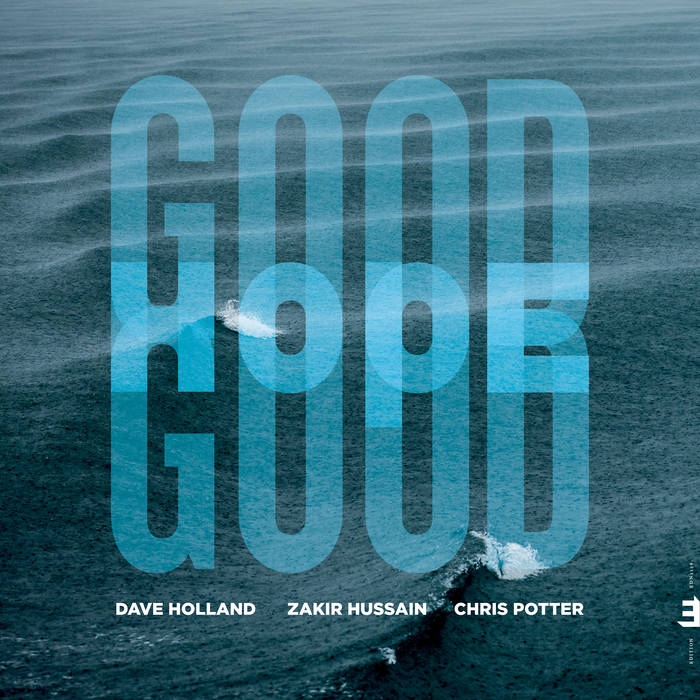
Although I’m sure there were others, I remember three prominent acts of my rock-and-rolling youth as having the pervasive reputation for being much better live than on record. “You just have to seem them live, man, you HAVE TO!”
Having seen all three live I am as qualified as anyone to comment:
- The Dead – pretty shitty live and in the studio
- Springsteen – phenomenal in both forums
- The Mekons – the truest example I know of the “you have to see them live” adage – on record they are largely forgettable while live they are… well you just have to see it. It’s hard to describe. The words that leap to my mind are “a honky tonkin’ Marxist Revolution in five acts” but that doesn’t begin to do it justice.
I saw what’s known as the Crosscurrents trio – Dave Holland, Zakir Hussain and Chris Potter – perform at the Place Des Arts in Montreal on the 4th of July, 2018 in the midst of an ungodly heat wave. It was among the most memorable live shows of my life at one of my favorite venues, just a sublime experience.
When I saw that this trio had released a record together, I was very excited. Perhaps not surprisingly, my first few listens left me thinking… maybe you just have to see them live.
Their performances are often described as musical conversations, and there’s no better way to put it. Three supreme virtuosos – Zakir Hussain, the yogi muppet king of the tabla, Dave Holland, the James Bond of jazz bassists, and Chris Potter, the unassuming wunderkind, his generation’s most agile and accomplished saxophonist. None of these men have ever shown the least bit of interest in showing off in that frenetic and soulless way that makes a lot of today’s conservatory-bred jazz both boring and alienating. All three exist in fealty to the indelible musical moment, improvisers and collaborators of the highest order. Add in the fact that they so clearly enjoy each other’s musical company and it makes for a potent brand of creative alchemy.
The music is exploratory modal jazz with an Eastern tinge, a vibe that reminds me of Holland’s wonderful record with Tunisian oud master Anouar Brahem, Blue Maqems (on drums Holland’s familiar battery mate Jack DeJohnette and Django Bates on piano – if you haven’t gotten a load of that, by all means flex your google bone). Potter and Holland contribute three compositions each with Hussain adding two of his own. Potter is in his usual inspired and effortless form on the record, turning in maybe his most dazzling solos on soprano in the 11-minute Holland-penned barn-burner, “Lucky Seven.”
But Potter’s prevalence is one of my complaints with the record in comparison to the live version of the trio. In concert, the soul of the experience is the playful and intuitive interaction between Holland and Hussain, with Hussain’s demonstrative and athletic ministrations from his raised platform making for a spectacle of seated drumming that has to be seen to be believed. Meanwhile Good Hope could be mistaken for a Chris Potter record. For my taste, Holland gets not nearly enough time to take center stage while Hussain gets almost none.
What’s more, and perhaps this is an inevitable result of recording such an outfit, but in comparison to the combustible dynamics of Potter’s tenor and soprano playing, the drums sound a little thin and distant, such that when the focus turns to Hussain the energy dips a little, the air goes out of the room. This is decidedly NOT how it feels when you see them live, and reminds me a little of what happens to piano solos on RVG Blue Notes from the glory years… Blakey and Lee Morgan and Shorter going bananas and the energy level quivering in the red zone and then suddenly it’s Bobby Timmons’ turn and… wah wah… the whole vibe turns to shit because the piano sounds like it has seventeen Persian rugs stuffed in the housing.
Another of my sonic complaints with the record is that Holland’s upright sounds a little soft to my ears. It lacks the spaciousness, contour and impact that I crave from the instrument, especially when someone as great as Dave Holland is playing the damn thing. The wooly bass sound makes the whole atmosphere feel a little fuzzy. I also wish the soundstage was a little wider – Hussain is slightly panned to the left channel, Holland dead center, and Potter a little more dramatically panned right. This mimics the way they set up on stage and I feel like the recording could more accurately capture the live dynamic with a more pronounced stereo spread.
My quibbles aside, though, this is a wonderful record of a trio that represents to me just about the most that I can ask for from music – challenging, pan-cultural, genre-bending, unpretentious excellence offering a level of intrigue and depth that I can’t imagine being exhausted after a hundred listens. Yes Potter is too prominently featured, but Potter is great and he’s at his best here. What’s more, the musical architecture remains a product of their synergy built over the course of however many performances together. Every track takes you on a journey. The contour of the bass sound be damned, I’ve played it all the way through at least twenty times already and I can’t get enough of it. Admittedly, a large part of my fascination is due to the fact that it takes me back to that sweltering Montreal summer night when these three guys blew my brains right the fuck out of my head. I was stone cold sober and I swear to you it was the best acid trip of my life.